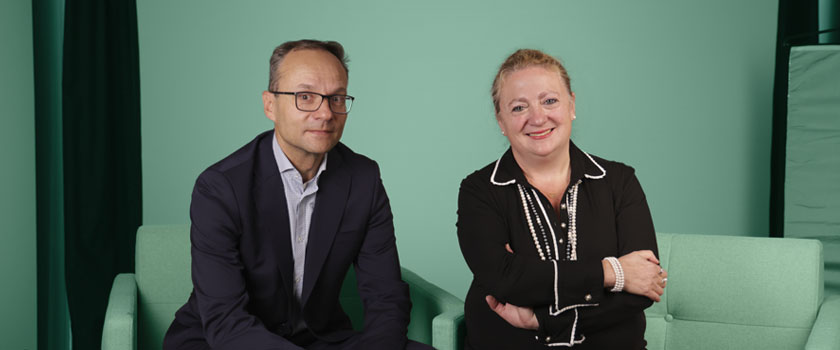There have been concerns about a possible exodus of wealth from Hong Kong following the enactment of the National Security Law.
While more Chinese UHNWIs in Hong Kong have been considering the favourable policies and relative stability of regional rival Singapore to diversify risk, Hong Kong’s proximity to mainland China and historical advantage have been two reasons why such families remain committed to Hong Kong.
Fan Choi, head of wealth planning, North Asia, UBP, told Asian Private Banker that clients used to choose either Hong Kong or Singapore to set up a family office (FO), but now tend to look at both, for diversification.
Choi said the bank has not observed significant outflows of money from Hong Kong:
“Many clients are still positive about the city and its many opportunities. But more often than before, FOs do tend to diversify their wealth — spread between Hong Kong and Singapore.”
She granted that since last year, on account of the unrest in Hong Kong, a number of clients have been planning to emigrate to countries of their passport residency and repatriate their wealth. “Towards the end of last year, some clients approached us for planning and structuring services, in order to be prepared to relocate from Hong Kong.”
Singapore beckons
On the other hand, favourable government schemes in Singapore have given its FO ecosystem a boost, with initiatives such as the Global Investor Programme by the Economic Development Board (EDB) of Singapore, and the tax incentives under sections 13R and 13X of the Income Tax Act for successful FO applicants.
The EDB programme, for instance, provides applicants with a pathway to gaining permanent residency in Singapore. This together with the city state’s attractive tax rate and stability has been appealing to Chinese families.
“We have seen a lot of momentum,” Faye Ong, head of wealth planning, South Asia, UBP, shared with Asian Private Banker. “Since last year, I have become more involved in talking to UHNW mainland Chinese and Taiwanese families about their interest in setting up a FO in Singapore.” The majority of her FO prospects, she added, are from mainland China.
With COVID-19 infection numbers soaring in Singapore over the past few months, Ong has seen the setting up of a FO “take on extra urgency for those who wish to gain employment passes or permanent residency in the city state”, though the overall momentum has “gone slightly down”.
Pandemic inspires FO restructuring
The economic fallout of COVID-19 has prompted families in Hong Kong and Singapore to rethink their family governance structure and revamp contingency planning, in order to adjust to the “new normal of working”. Furthermore, the low valuations and declining business incomes have led many to prioritise wealth preservation.
“Because of COVID-19, there is now even greater rigour when thinking about, and planning for, a FO set-up. Typically, the simplistic structure is to have two companies, one for the fund account and one for the FO operation. Now, shareholder agreements are worked into the FO structure and many may have a portion of their family businesses embedded in the FO”, Ong explained.
Choi added that in terms of changing the decision-making structure or contingency planning, it not only concerns members of the family but also the advisors — “to ensure that an alternative is available when the key person running these structures cannot be there”.
Choi continued: “Apart from reviewing the existing governance structure, the families have been looking at their risk management system, focusing on ways to transfer risks effectively, either through insurance or otherwise. In short, it is the long-term strategies that they are focusing on”.
In this process, the traditionally difficult conversations around succession planning and giving rein to the next-gens have opened up, both Choi and Ong acknowledged.
“Once there is openness to the issue, the approach is simple: it is about letting the patriarchs/matriarchs talk and [the next-gens] taking note of their key concerns. We discuss the various approaches to succession planning and device a strategy and institute a framework that is robust and yet flexible enough to change,”
explained Ong.
Unbiased advice
Choi said the bank has observed a trend among FOs in Hong Kong, where a number of single-family offices are pooling resources to invest in an investment project (e.g. in private equity) which “helps them achieve cost efficiency and diversify the financial risks”.
As more wealthy families in Asia become global, their demand for professional advice to navigate the complexity of tax policies and reporting is set to increase, and Choi made the case that UBP, with its independent services, is well placed to meet such needs.
“We work like a project manager. For instance, once the design is completed, the implementation and operation are handed back to the family. Of course, we will be with them throughout the journey.”
She admitted that working with FO clients is a long journey: it takes up to six months to a year to set up an FO. “During the process, we build a mutual understanding and trust between us and the family, and being professional and independent are the two important aspects of our business.”

Fan Choi
Head of Wealth Planning, North Asia

Faye Ong
Head of Wealth Planning, South Asia








